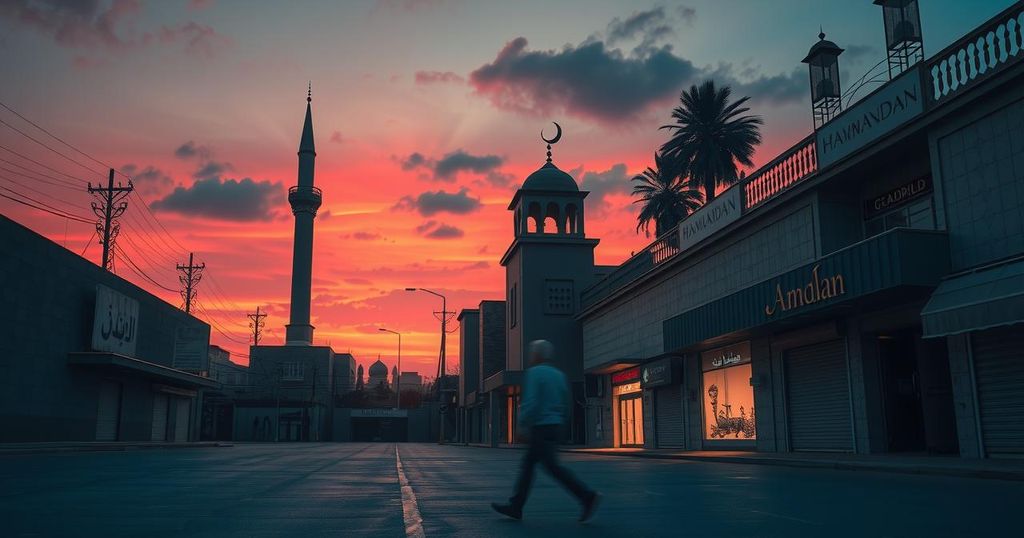As Ramadan approaches, many Syrians face economic hardships due to a cash shortage, exacerbated by new bank withdrawal limits. Long lines form outside banks as families struggle to afford basic necessities and traditional holiday expenses, leading to concerns about upholding cultural practices. The situation follows the recent shift in government after the Assad regime, with citizens expressing their challenges in preparing for the holy month.
As Ramadan approaches, the situation in Syria has taken a dire turn, largely due to the ongoing economic instability that has worsened in the aftermath of the civil war and recent governmental policy changes. Many Syrians are facing significant challenges as they prepare for what is traditionally a festive and sacred month, with a cash shortage profoundly impacting their ability to participate in customary practices.
In the capital city of Damascus, long queues of individuals have formed outside banks, where people often spend several hours waiting to withdraw a meager sum equivalent to approximately $15. This amount falls significantly short when considering the expenses required for holiday shopping and basic necessities during Ramadan, which emphasizes community and family.
Sleiman Dawoud, a civil engineer aged 56, articulates the plight of many citizens: “That can buy maybe a kilo and a half of meat. But what about the bread, and vegetables and fruits? Ramadan is coming, and we need to spend.” Such financial constraints force families to prioritize their spending and rethink their holiday plans.
Elder citizens, including 75-year-old Ra’if Ghnaim, express concern about maintaining traditions that hold cultural significance. He remarked, “How are we going to celebrate and give gifts to the children?” As Ramadan approaches, the community grapples with how to uphold their customs amidst difficult economic realities.
Significantly, this Ramadan follows three months after the fall of the Assad regime, which had maintained a tight grip on the country for over fifty years. The newly established coalition government in Damascus has implemented several economic measures, yet the results have not alleviated the strain felt by ordinary citizens as they embark on their Ramadan preparations.
In summary, as the holy month of Ramadan nears, many Syrians are struggling with severe economic challenges that hinder their ability to engage in traditional festivities. The newly implemented governmental policies and cash withdrawal limits have only compounded these issues. Ultimately, this situation calls attention to the dire straits faced by individuals who strive to celebrate amidst adversity.
Original Source: www.nytimes.com






